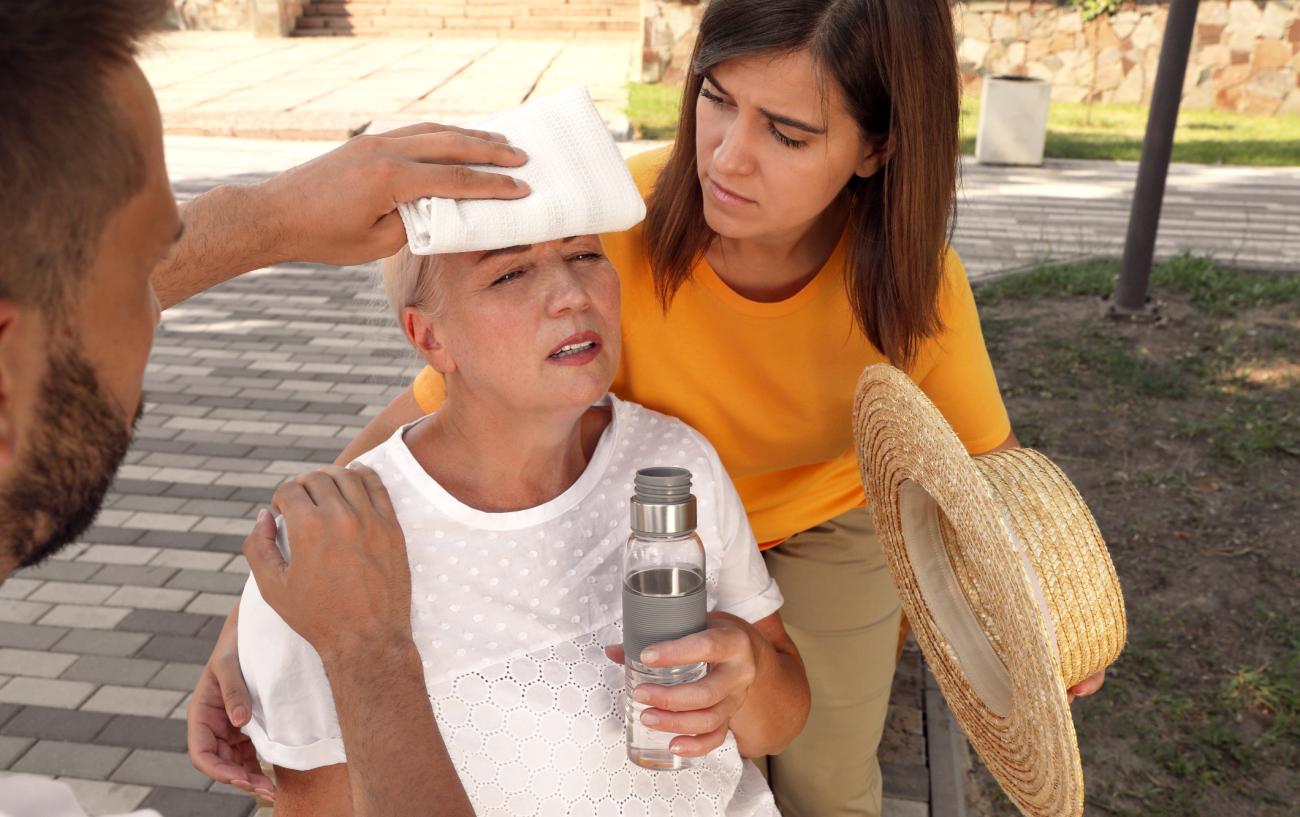
Higher than average community-based cardiac arrest rates and negative health outcomes should be anticipated during heatwaves.
The first study in North America to look at the relationship between heat, out-of-hospital cardiac arrest (OHCA) and patient outcomes paints a bleak picture. Led by Vancouver Coastal Health Research Institute researcher Dr. Brian Grunau, the study found higher temperatures were associated with an increased incidence of cardiac arrest and a lower probability of survival, particularly when temperatures exceeded a daily mean of 25 degrees Celsius.
“Based on our results, it is likely that health care systems should prepare to treat a higher volume of cardiac arrest patients during heatwaves.”
Cardiac arrest occurs when the heart stops. Beyond heart attack, cardiac arrest can be the result of multiple other conditions, including infections, blood clots or drug poisonings.

Prior research has linked heat to poor health outcomes and tracked the outcomes of patients treated for cardiac arrest in hospital. There are approximately 60,000 OCHAs across Canada each year; however, the number of untreated cardiac arrests is often overlooked, states Grunau.
“Untreated patients are important to consider when examining the impact of heat on cardiac arrest incidence and outcomes.”
“Medical treatment is not pursued for around half of cardiac arrest patients, as is deemed futile,” says Grunau. “The reason for non-treatment in the majority of these cases is that a prolonged time has passed between the cardiac arrest and the patient being identified.”
Health care system preparedness is needed for cardiac arrests during heatwaves
Annual mean temperatures in B.C. increased by 1.9 degrees Celsius between 1948 and 2016, according to a 2019 Government of Canada report. With climate change causing a rise in global temperatures, as well as here in B.C., Grunau and his team wanted to know how recent heatwaves were impacting the total number of cardiac arrests in the province.
In their paper, published in Resuscitation Plus, Grunau and his team drew from the BC Cardiac Arrest Registry — run by Grunau and Dr. Jim Christenson since 2006 — which includes every non-traumatic OHCA in B.C.
"Our data demonstrates a worrisome picture with regards to OHCA survival during heatwaves.”
Their analysis covered data in the registry between June 1 and September 30 in both 2020 and 2021, and analysed the association between daily mean temperature and both OHCA incidence and survival. Notably, B.C. experienced a period of extreme heat in the summer of 2021, called a heat dome, with parts of the province attaining a record-high temperature of 49.6 degrees Celsius.
Researchers found that OHCA incidence increased with increasing temperatures, especially ones that were at the very upper extremes of the historic norm, which was a daily mean temperature of 25 degrees Celsius. Compared to the median temperature of 16.9 degrees Celsius, both treated and untreated OHCA patients were four times more common during days when the daily mean temperature exceeded 25 degrees Celsius.
Researchers also found that a lower proportion of OHCAs survived when daily mean temperatures exceeded 25 degrees Celsius: only 2.2 per cent of treated OHCA patients survived, compared with a 10 per cent survival rate among treated OHCA patients during non-heatwave periods.
“By characterizing out-of-hospital cardiac arrest in B.C., our research widens the understanding of the true impact heat events can have on patient outcomes.”
A further observation from Grunau’s research was that excessive heat did not appear to disproportionately impact individuals who had an OHCA in the context of non-prescription drugs.
“These results suggest that increased planning and preparedness is warranted for periods of extreme heat,” states Grunau.


